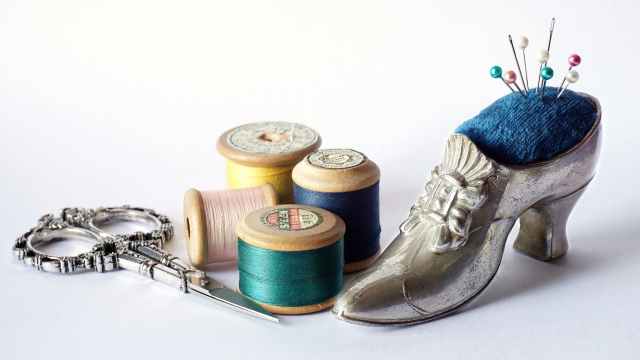Your cart is currently empty!
Asthma Care
Horsetail (Shavegrass) Tea The tea mixture that I make is very plain and bland but I mostly use it for asthma and bronchitis so you don’t need much of it or do I advice that you use much as any herb can have side effects and a little is better when trying a new herb.…
Horsetail (Shavegrass) Tea
The tea mixture that I make is very plain and bland but I mostly use it for asthma and bronchitis so you don’t need much of it or do I advice that you use much as any herb can have side effects and a little is better when trying a new herb. Also note that I was taught to use horsetail for external bleeding wounds, you moisten the horsetail or steep a concentrated mixture and apply to the wound and it stops bleeding. Note these are the things I was taught by my people the things I now have never been proven scientifically to me or what I have been taught by my father and grandfather. The name of shave grass/horsetail in my language is: “KEZIBSKOL” it’s translation is Hissing Plant, Scouring Bushes, Horsetail.
I boil approximately 1/4 ounce of horsetail in one quart of water and then steep for 10-minutes. You can add other things to better the taste I suppose what ever you might want, but keep in mind that I only recommend 1 tbl. to try it to see if you have any bad reactions to it and if not then I drink one cup a day while having respiratory problems.
I hope this helps.
Love & Happiness
Autumn
Disclamer: I am no way recommending anyone take any of my advice or even follow my recipe for the tea or wound healer. I am not a doctor, I am Native American and am just saying how I use “KEZIBSKOL” for my own use what I was taught by my people the Penobscots.
~~~~~~~~~~~~~~~~~~~~~~~~~~~~~~~~~~~~~~~
Asthma Information
Since we were talking about Asthma I thought you might like to peruse the following
information.
Adriane
_________________________________________________________________________
Nutritional supplements that may be helpful: Vitamin B6 deficiency is common in asthmatics. This deficiency may relate to the asthma itself or to certain asthma drugs (such as theophylline and aminophylline) that deplete vitamin B6. In a double blind study of asthmatic children, 200 mg per day of vitamin B6 for two months reduced the severity of their illness and reduced the amount of asthma medication needed. In another study, asthmatic adults experienced a dramatic decrease in the frequency and severity of asthma attacks while taking 50 mg of vitamin B6 twice a day. Nonetheless, the research remains somewhat inconsistent, and at least one double blind study did not find high levels of B6 to help asthmatics who require the use of steroid drugs.
Magnesium levels are frequently low in asthmatics. Magnesium supplements might help prevent asthma attacks because magnesium can prevent spasms of the bronchial passages. Intravenous injection of magnesium has been reported to stop acute asthma attacks within minutes in double blind research. Although the effect of oral magnesium has not been appropriately studied, many doctors recommend magnesium supplements for their asthma patients. The usual amount of magnesium taken by an adult is 200 400 mg per day (children take proportionately less based on their body weight).
Supplementation with 1 gram of vitamin C per day reduces the tendency of the bronchial passages to go into spasm, an action that has been confirmed in double blind research. Some individuals with asthma have shown improvement after taking 1 2 grams of vitamin C per day. A buffered form of vitamin C (such as sodium ascorbate or calcium ascorbate) may work better for some asthmatics than regular vitamin C (ascorbic acid).
Very high amounts of vitamin B12 supplements (1,500 mcg per day) have been found to reduce the tendency for asthmatics to react to sulfites. The trace mineral molybdenum also helps the body detoxify sulfite, though the ability of supplemental molybdenum to help asthma patients remains mostly unexplored. A nutritionally oriented physician should be involved in any evaluation and treatment of sulfite sensitivity.
People with low levels of selenium have a high risk of asthma. Asthma involves free radical damage that selenium might protect against. A double blind trial gave 45 mcg of selenium to twelve people with asthma. Half showed clear clinical improvement even though lung function tests did not change. Most doctors of natural medicine recommend 200 mcg per day for adults (and proportionately less for children) a much higher, though still safe level.
Double blind research shows that fish oil partially reduces reactions to allergens that can trigger attacks in some asthmatics. Although a few researchers report small but significant improvements when asthmatics supplement fish oil, a review of the research shows that most fish oil studies with asthmatics come up empty handed. Nonetheless, there is evidence that children who eat oily fish may have a much lower risk of getting asthma. Therefore, even though evidence supporting the use of fish oils remains weak, eating more fish may still be worth considering.
Stomach levels of hydrochloric acid were reported to be low in asthmatic children many years ago. Supplementation with betaine HCl in combination with avoidance of known food allergens led to clinical improvement.
Quercetin, a flavonoid found in most plants, has an inhibiting action on lipoxygenase, an enzyme that contributes to problems with asthma. No human studies have confirmed whether quercetin decreases asthma symptoms. Some nutritionally oriented doctors are currently experimenting with 400 1,000 mg of quercetin three times per day.
Bromelain reduces the thickness of mucus, which may be beneficial for those with asthma, though clinical actions in asthmatics remain unproven.
Are there any side effects or interactions? Refer to the individual supplement for information about any side effects or interactions.
Herbs that may be helpful: Ephedrine, an alkaloid extracted from ephedra, is an approved over-the-counter treatment for bronchial tightness associated with asthma. Over-the-counter drugs containing ephedrine can be safely used by adults in the amount of 12.5 25 mg every four hours. Adults should take a total dose of no more than 150 mg every twenty-four hours. They should refer to labels for children s dosages. Ephedrine has largely been replaced by other bronchodilating drugs, such as alupent and albuterol. Ephedra sinica, also known as ma huang, continues to be a component of traditional
herbal preparations for asthma, often in amounts of 1 2 grams of the herb per day.
Traditionally, herbs that have a soothing action on bronchioles are also used for asthma. These would include marshmallow, mullein, and licorice.
Ginkgo extracts have been considered a potential therapy for asthma for some time. This is because the extracts block the action of platelet-activating factor (PAF), a compound the body produces that in part causes asthma symptoms. A study using isolated ginkgolides from ginkgo (not the whole extract) found they reduced asthma symptoms. A controlled study used a highly concentrated tincture of ginkgo leaf and found this helped decrease asthma symptoms. For asthma, 120 240 mg of standardized extract or 3 4 ml of regular tincture three times daily can be used.
Eclectic physicians doctors at the turn of the century in North America who used herbs as their main medicine considered lobelia to be one of the most important plant medicines. Traditionally, it was used by Eclectics to treat coughs and spasms in the lungs from all sorts of causes.
Checklist for Asthma
* Selenium
* Vitamin B6
* Ephedra
* Other Betaine HCl
* Bromelain
* Fish Oil (EPA)
* Magnesium
* Molybdenum
* Quercetin
* Vitamin B12
* Vitamin C
* Elecampane
* Ginkgo Biloba
* Licorice
* Lobelia
* Marshmallow
* Mullein
References:
1. Lindahl O, Lindwall L, Spangberg A, et al. Vegan regimen with reduced medication in
the treatment of bronchial asthma. J Asthma 1985;22:45 55.
2. Chiaramonte LT, Altman D. Food sensitivity in asthma: perception and reality. J
Asthma 1991;28:5 9.
3. Rowe AH, Young EJ. Bronchial asthma due to food allergy alone in ninety-five
patients. JAMA 1959;169:1158.
4. Sampson HA, Mendelson L, Rosen JP. Fatal and near-fatal anaphylactic reactions to
food in children and adolescents. N Engl J Med 1992;327:380.
5. Genton C, Frie PC, Pecoud A. Value of oral provocation tests to aspirin and food
additives in the routine investigation of asthma and chronic urticaria. J Asthma
1985;76:40 45.
6. Townes SJ, Mellis CM. Role of acetyl salicylic acid and sodium metabisulfite in
chronic childhood asthma. Pediatr 1984;73:631 37.
7. Soyka F, Edmonds A. The Ion Effect. New York:Bantam, 1977.
8. Bowler SD, Green A,Mitchell CA. Buteyko breathing techniques in asthma: a blinded
randomised controlled trial. Med J Austral 1998;169:575 78.
9. Collipp PJ et al. Tryptophane metabolism in bronchial asthma. Ann Allergy 1975;35:153
58.
10. Weir MR et al. Depression of vitamin B6 levels due to theophylline. Ann Allergy
1990;65:59 62.
11. Collipp PJ et al. Pyridoxine treatment of childhood bronchial asthma. Ann Allergy
1975;35:93 97.
12. Reynolds RD, Natta CL. Depressed plasma pyridoxal phosphate concentrations in adult
asthmatics. Am J Clin Nutr 1985;41:684 88.
13. Sur S, Camara M, Buchmeier A, et al. Double-blind trial of pyridoxine (vitamin B6)
in the treatment of steroid-dependent asthma. Ann Allerg 1993;70:141-52.
14. Haury VG. Blood serum magnesium in bronchial asthma and its treatment by the
administration of magnesium sulfate. J Lab Clin Med 1940;26:340 44.
15. Skobeloff EM et al. Intravenous magnesium sulfate for the treatment of acute asthma
in the emergency department. JAMA 1989;262:1210 13.
16. Zuskin E et al. Byssinosis and airway responses due to exposure to textile dust.
Lung 1976;154:17 24.
17. Bucca C, Rolla G, Oliva A, Farina J-C. Effect of vitamin C on histamine bronchial
responsiveness of patients with allergic rhinitis. Ann Allerg 1990;65:311 14.
18. Ruskin SL. Sodium ascorbate in the treatment of allergic disturbances. The role of
adrenal cortical hormone-sodium-vitamin C. Am J Dig Dis 1947;14:302 306.
19. Anibarro B et al. Asthma with sulfite intolerance in children: A blocking study with
cyanocobalamin. J Allerg Clin Immunol 1992;90:103 109.
20. Johnson JL et al. Molybdenum cofactor deficiency in a patient previously
characterized as deficient in sulfite oxidase. Biochem Med Metabol Biol 1988;40:86 93.
21. Stone J, Hinks LJ, Beasley R, et al. Reduced selenium status of patients with
asthma. Clin Sci 1989;77:495 500.
22. Flatt A, Pearce N, Thomson CD, et al. Reduced selenium in asthmatic subjects in New
Zealand. Thorax 1990;45:95 99.
23. Owen S, Pearson D, Suarez-Mendez V, et al. Evidence of free-radical activity in
asthma. N Engl J Med 1991;325:586 87 [letter].
24. Hasselmark L, Malmgren R, Zetterstrom O, Unge G. Selenium supplementation in
intrinsic asthma. Allerg 1993;48:30 36.
25. Arm JP, Horton CE, Eiser NM, et al. The effects of dietary supplementation with fish
oil on asthmatic responses to antigen. Allerg Clin Immunol 1988;81:183 [abstract #57].
26. Broughton KS, Johnson CS, Pace BK, et al. Reduced asthma symptoms with n-3 fatty
acid ingestion are related to 5-series leukotriene production. Am J Clin Nutr
1997;65:1011 17.
27. Dry J, Vincent D. Effect of a fish oil diet on asthma: results of a 1-year double-
blind study. Int Arch Allerg Appl Immunol 1991;95:156 57.
28. Thien FCK, Woods RK, Waters EH. Oily fish and asthma a fishy story? Med J Austral
1996;164:135 36 [editorial].
29. Hodge L, Salome CM, Peat JK, et al. Consumption of oily fish and childhood asthma
risk. Med J Austral 1996;164:137 40.
30. Bray GW. The hypochlorhydria of asthma in childhood. Quart J Med 1931;24:181 97.
31. Welton AF, Tobias LD, Fiedler-Nagy C, et al. Effect of flavonoids on arachidonic
acid metabolism. Prog Clin Biol Res 1986;213:231 42.
32. Schafer A, Adelman B. Plasma inhibition of platelet function and of arachidonic acid
metabolism. J Clin Invest 1985;75:456 61.
33. Leung AY, Foster S. Encyclopedia of Common Natural Ingredients Used in Foods, Drugs,
and Cosmetics, 2d ed. New York: John Wiley and Sons, 1996, 227 29.
34. Guinot P, Brambilla Dunchier J, et al. Effect of BN 52063, a specific PAF-ascether
antagonist, on bronchial provocation test to allergens in asthmatic patients a
preliminary study. Prostaglandins 1987;34(5):723 31.
35. Li M, Yang B, Yu H, Zhang H. Clinical observation of the therapeutic effect of
ginkgo leaf concentrated oral liquor on bronchial asthma. Chinese J Integrative &
Western Med 1997;3:264 67.
36. Felter HW, Lloyd JU. King s American Dispensatory, 18th ed. Sandy, OR: Eclectic
Medical Publications, 1898, 1983, 1199 1205.
37. Ellingwood F. American Materia Medica, Therapeutics and Pharmacognosy, 11th ed.
Sandy, OR: Eclectic Medical Publications, 1919, 1998, 235 42.
——————————————————————————–
Copyright ) 1999 Healthnotes, Inc. 1505 SE Gideon St., Suite 200, Portland, OR 97202
http://www.healthnotes.com Authors of the best-selling book The Natural Pharmacy
The information presented in Healthnotes Online is for informational purposes only. It is based on scientific studies (human, animal, or in vitro), clinical experience, or traditional usage as cited in each article. The results reported may not necessarily occur in all individuals. For many of the conditions discussed, treatment with prescription or over-the-counter medication is also available. Consult your physician, nutritionally oriented healthcare practitioner, and/or pharmacist for any health problem and before using any supplements or before making any changes in prescribed medications.
——————————————————————————–
Reviewed: 01-Jul-1999





Leave a Reply